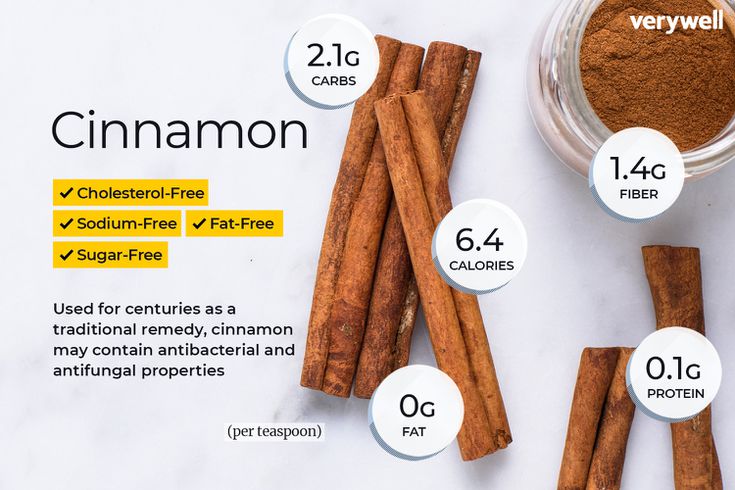I LOVE Cinnamon, I use it for topping my Overnight Oats, with yoghurt and in cooking (and baking!), added to a homemade hot chocolate can give it a very luxurious feel and takes off the bitterness of the cacao powder I use the alter eco fair trade no sugar added and it’s quite a powerful hit of cacao so adding that Cinnamon really does make a difference!
It really helps to take the edge of some of sugar cravings that can happen as well! I am at the point now, that if I do forget to add it to my breakfast or Yoghurt I miss it …. but that is a better craving I am sure! Obviously I add it once I realise it’s missing….
So why Cinnamon in place of sugar? Well for me it’s a no brainer, it tastes fabulous, it gives food a different and sweeter taste and in winter has that warming effect I find, which is probably why it is used in Vin Chaud 😉 umm…low in calories and a lovely taste – did I already say that?
Made from the bark of the cinnamon tree and is either rolled into cinnamon sticks (called quills) or ground into a fine powder.

Beyond its use in cooking, cinnamon is believed to have medicinal properties. Alternative practitioners believe that cinnamon can lower blood sugar, treat superficial fungal infections, and reduce inflammation and pain. The current research remains split on whether cinnamon can deliver on these promises.
Types of cinnamon

- Cinnamon thrives in tropical regions, where the main variety is Ceylon cinnamon from the Cinnamomum Zeylanicum plant, which comes from Sri Lanka.
- The other main type is Cassia cinnamon, which has a stronger taste and is slightly cheaper.
- To maximise the medicinal value and health benefits of cinnamon, regardless of type, the key thing is its freshness.
- Some prefer the sweet, subtle flavour of Ceylon cinnamon in desserts and the stronger potency of Cassia in savoury dishes, but most commercial cinnamon is a mixture of the two.
Health Benefits
Cinnamon has been used for centuries in traditional medicine. In traditional Chinese medicine, Cassia cinnamon is used for colds, flatulence, nausea, diarrhea, and painful menstrual periods. It is also believed to improve energy, vitality, and circulation, particularly in people with cold feet.
In Ayurvedic medicine, cinnamon is used as a remedy for diabetes, indigestion, and colds, and can help balance a person’s kapha (physical and emotional energies). It is also a common ingredient in Chai tea and cinnamon tea, both of which are believed to improve digestion.
1. It has anti-viral, anti-bacterial and anti-fungal properties….
Cinnamon is thought to have many medicinal and soothing properties, and is used frequently in Chinese herbal medicine. The distinctive smell and flavour of cinnamon comes from the essential oils contained in the bark, called cinnamaldehyde. Cinnamaldehyde displays anti-viral, anti-bacterial and anti-fungal properties.
2. Contains antioxidants with anti-inflammatory effects….
Cinnamon also contains large amounts of polyphenol antioxidants. Antioxidants can help protect the body from disease and are found in fruits, vegetables, herbs and spices. The antioxidants in cinnamon have been found to have anti-inflammatory effects.
3. Its prebiotic properties may improve gut health….
Some spices, including cinnamon, have prebiotic properties that promote the growth of beneficial bacteria and help suppress the growth of pathogenic bacteria. Therefore, including spices regularly in your diet may help improve gut health.
Cinnamon is also a useful source of manganese and contains small amounts of calcium and fibre.
4. Reduces blood pressure….
There is some evidence to suggest that the consumption of cinnamon is associated with a short-term reduction in blood pressure. Although the evidence is hopeful, it would be premature to recommend cinnamon for blood pressure control until a comprehensive randomised controlled trial (RCT) involving a larger number of patients has been carried out. More recent studies have, to date, shown less promising findings.
5. Lowers blood sugar and risk of type 2 diabetes….
It has been suggested that cinnamon can have a moderate effect in improving glycaemic control and supporting the management of type 2 diabetes. However, conclusions are mixed, and larger randomised controlled trials are needed in well-defined population groups using standardised interventions in order to definitively determine the efficacy of using cinnamon in subjects with diabetes. However, a small amount used at breakfast or in baking will not do any harm, and can be eaten as part of a balanced diet.
6. Relieves digestive discomfort….
Cinnamon extract has been used to alleviate gastrointestinal problems in both Eastern and Western medicine for years. It has been described as a carminative, renowned for its digestive, anti-microbial and anti-inflammatory properties. In traditional Ayurvedic medicine, cinnamon bark oil is used for treating flatulence and digestive imbalance. It is believed that the warmth of cinnamon increases blood flow and improves blood oxygen levels to help fight off illness. To alleviate digestive symptoms, cinnamon is taken as part of a hot drink (much like a tea). In this instance, it’s easier to use ground cinnamon rather than trying to grate cinnamon sticks yourself.
How about a couple of simple recipe using cinnamon?
Roast apples with cinnamon sugar
Preparation and cooking time
- Prep: 10 mins
- Cook: 40 mins – 50 mins
- Easy
- Serves 6
These fluffy apples and sticky sauce are the perfect way to finish off a Sunday feast
Ingredients
50g natural dried breadcrumbs8 dried apricots, roughly chopped
75g cinnamon sugar (see below) personally I would just use cinnamon and a ginger mix omitting the sugar….
75g butter , chopped
zest and juice 1 orange
6 large Bramley apples
custard or vanilla ice cream, to serve or if you are wanting a lighter choice – they fromage blanc or natural yoghurt.
Method
Heat oven to 180C/160C fan/gas 4.
Mix together the breadcrumbs, apricots, cinnamon sugar, butter and zest .
Using an apple corer, remove the centre of each apple, then score the skin across the equator so they don’t collapse during roasting.
Pack the filling into the apples, then sit them snugly into an ovenproof dish. Mix together the orange juice and 150ml water and pour round the apples. Roast for 40-50 mins until nicely browned and very soft, but still just holding their shape. Serve with the sticky pan juices and custard or ice cream.
MAKE YOUR OWN CINNAMON SUGAR
Mix together golden granulated sugar and ground cinnamon at a ratio of 100g/4oz sugar to 1 tsp cinnamon. If you want the flavour without the colour, bury a couple of whole cinnamon sticks in a jar of sugar and leave for at least 3 months before using.
Butternut & Cinnamon Overnight Oats
Make a healthy, low-fat, filling breakfast with the spicy, sweet flavours of pumpkin pie. It’s a great way to start the day!
By Sara Buenfeld
Preparation and cooking time
Prep: 10 mins
Cook:10 min ~ plus overnight soaking
Easy ~ Serves 4
Make a healthy, low-fat, filling breakfast with the spicy, sweet flavours of pumpkin pie. It’s a great way to start the day
Ingredients
- 120g porridge oats
- 80g raisins
- 2 tsp ground cinnamon , plus a sprinkling to serve
- large chunk butternut squash, peeled and coarsely grated (approx 320g grated weight)
- 2 x 150ml pots bio yogurt
- 25g walnuts roughly broken
- milk of your choice, to serve (optional)
Method
STEP 1
Tip the oats, raisins and cinnamon into a large bowl and pour over 1 litre cold water. Cover the bowl and leave to soak overnight.
STEP 2
The next morning, tip the contents into a large saucepan and stir in the grated squash. Cook for about 8-10 mins over a medium heat, stirring frequently, until the oats are cooked and the squash is soft. Add a little more water if it’s too thick.
STEP 3
Put half of the mixture in the fridge for the next day. Spoon the remainder into bowls, top each portion with 1 pot yogurt and half the nuts. Dust with cinnamon, then serve with a splash of milk.
I also use Cinnamon oil in a blend for a couple of my clients who enjoy the benefits greatly! If you would like to know why I use it then please look here http://holistically-yours.com/essential-oil-of-the-month-decembers-pick-of-the-oils/
And for those of you that are looking for a warming nighttime drink instead of your Caffeine laden brew…Cinnamon mixed with warm milk can be a drink that can become a part of an active approach to wellness that keeps your stress in check and ensures you get a good night’s sleep.
Drinking warm milk with cinnamon puts you to sleep.
If you are unable to sleep at night? Drinking warm milk (Plant based works especially well) with cinnamon every night before bed will get you your much deserved beauty sleep because cinnamon works wonders in relaxing your muscles and removing tension from your body.
More about Sleep over the next few weeks!

Possible Side Effects: Cassia cinnamon, the kind normally found in grocery stores, contains high concentrations of a compound called coumarin. If consumed in high doses, cinnamon can cause heartburn, indigestion, and mild sweating. Over time, the accumulation of coumarin in the body can impede blood clotting and lead to liver damage. Cinnamon supplements should be avoided in people taking blood thinners like Coumadin (warfarin) as this can lead to bleeding problems, including bruising and nosebleeds. Do not take a cinnamon supplement before surgery or a dental procedure.
Cinnamon essential oil is highly potent and may cause nausea, vomiting, diarrhea, and dizziness if taken internally. While a single drop in a cup of tea may not do you any harm, anything more should be avoided, even if the oil is “therapeutic grade.” If used topically, cinnamon essential oil should be diluted in a carrier oil like almond oil or jojoba oil. If left undiluted, cinnamon oil can cause skin irritation, redness, rash, and a burning sensation. Never apply cinnamon vaginally to treat a yeast infection.
Cinnamon can also trigger an allergic response in some people, usually mild to moderate in severity. Symptoms can include rash, nasal congestion, dizziness, or nausea.
Disclaimer As always these articles are sourced from various websites and coursework I have. If you have any health issues then please make sure you do your research before adding to your diet. These articles are for wellbeing and not to replace any medication you maybe on.



